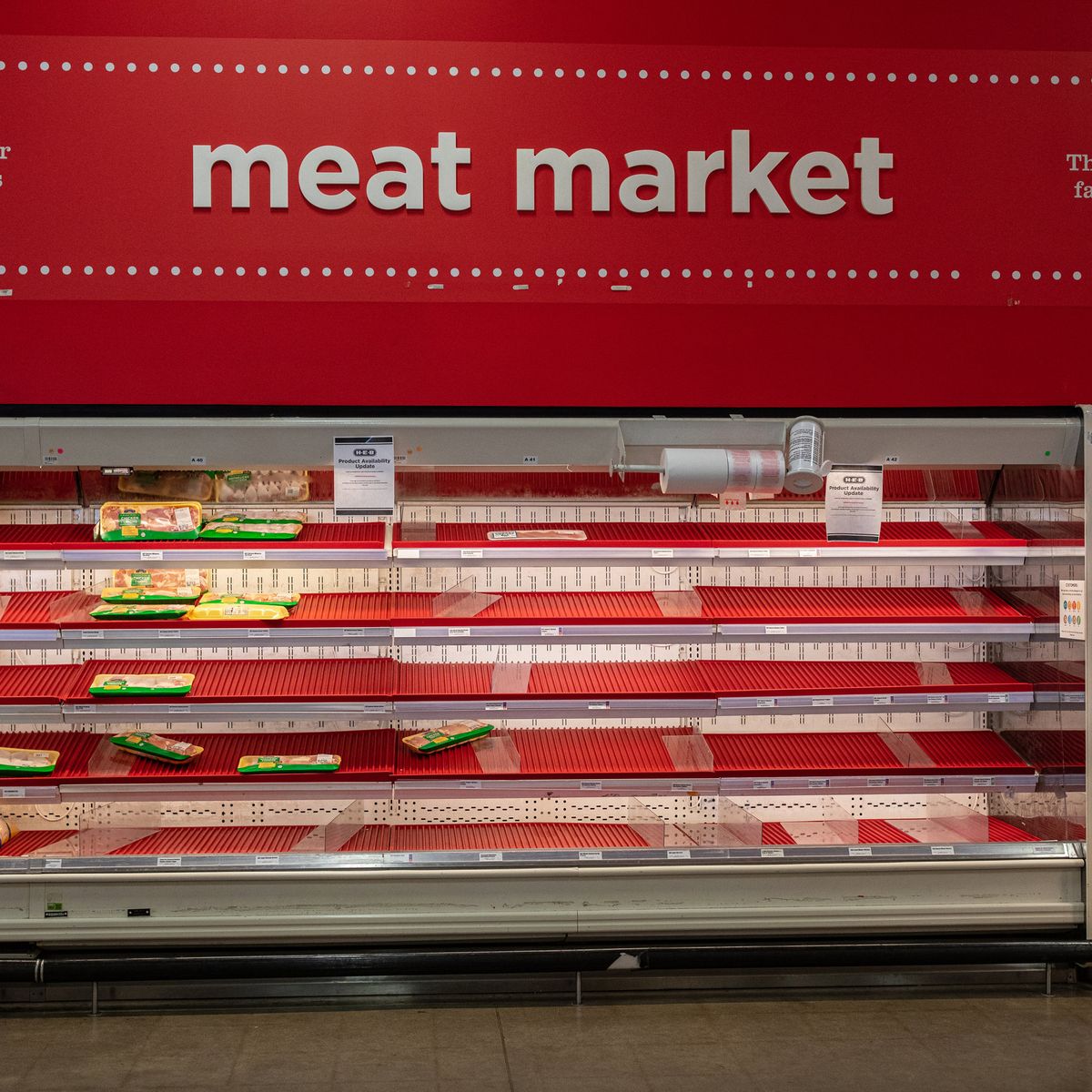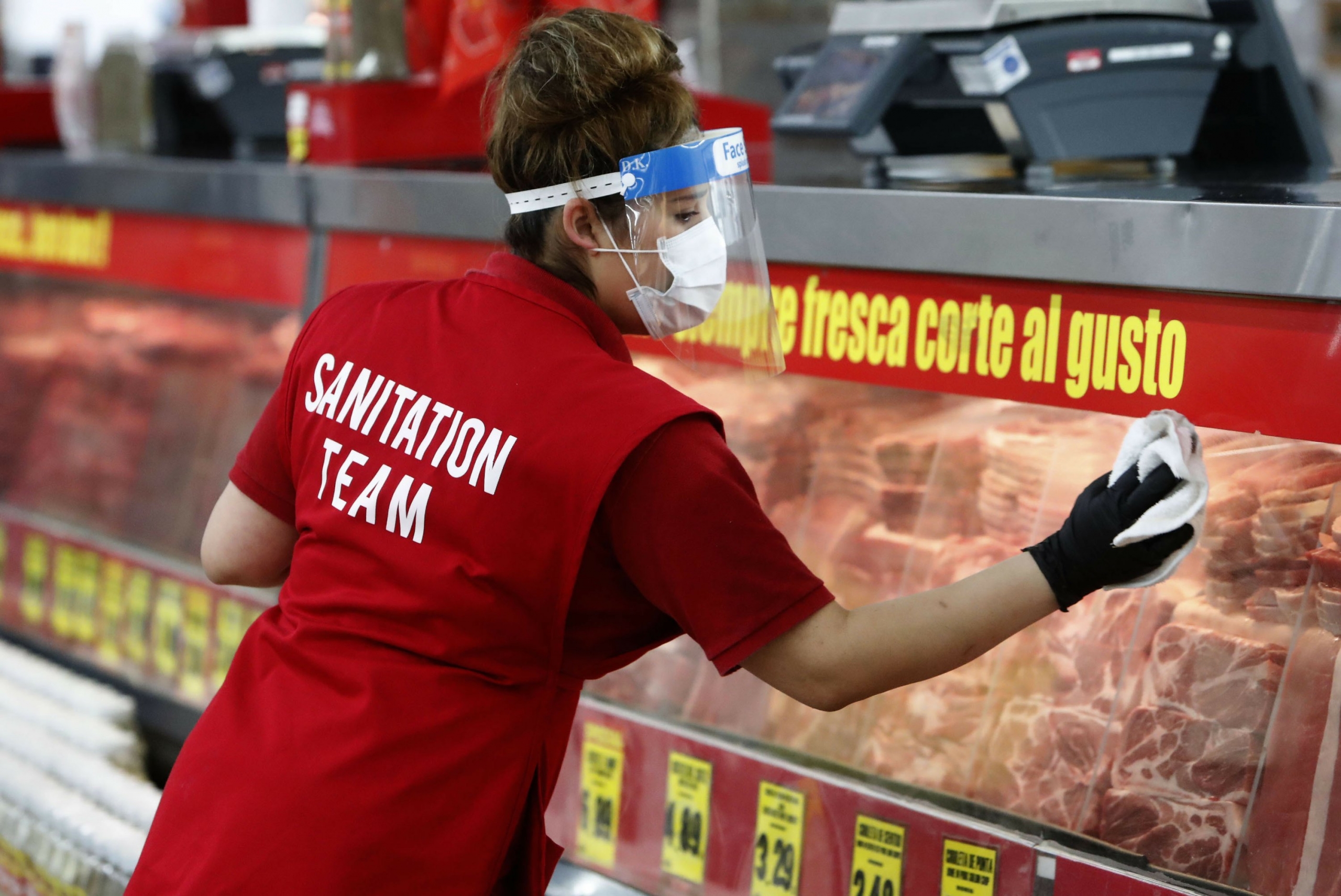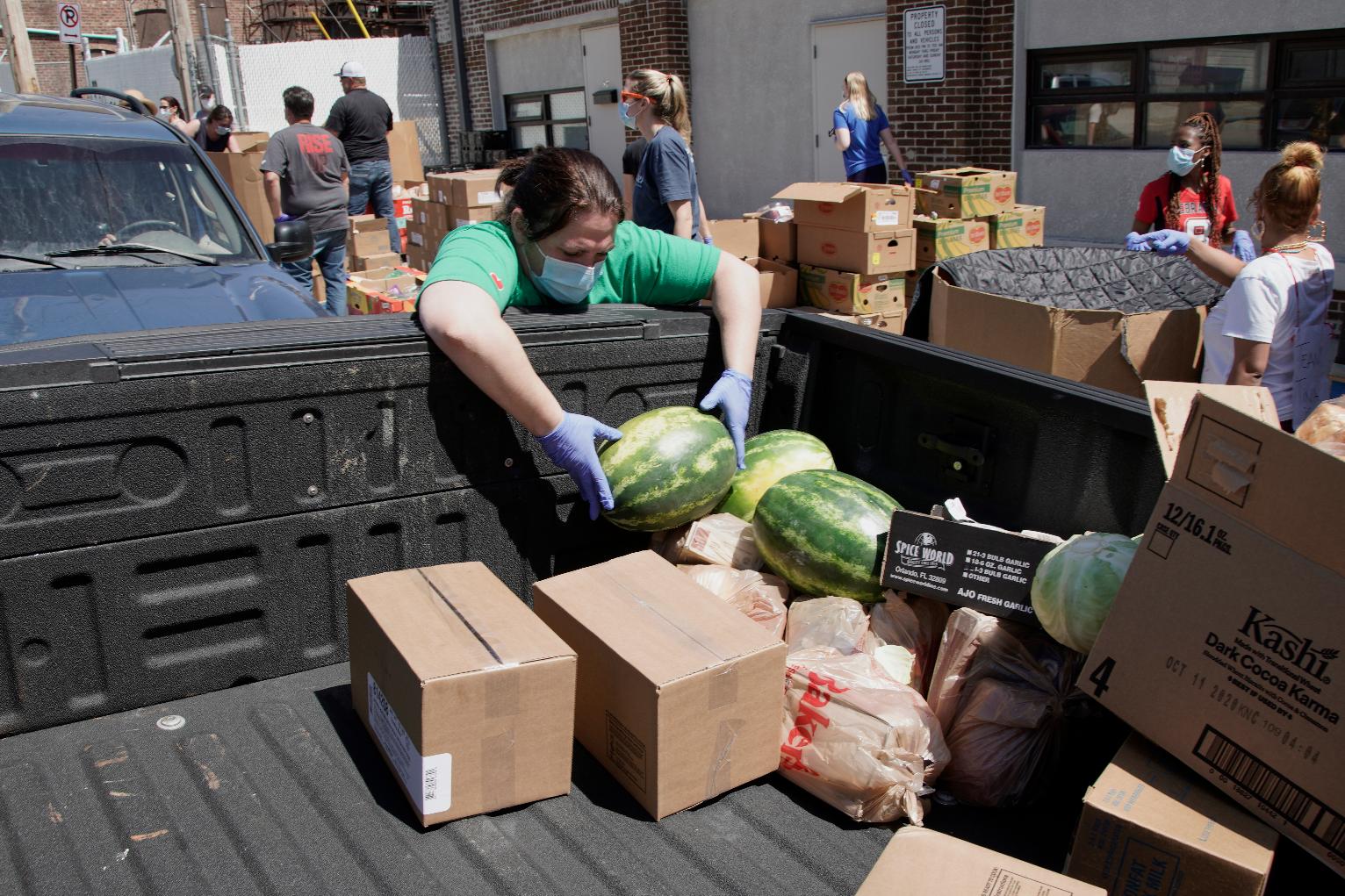Meatpacking plants across the US close over COVID-19 spread, causing concerns over US supply

A few minutes every morning is all you need.
Stay up to date on the world's Headlines and Human Stories. It's fun, it's factual, it's fluff-free.
On Thursday, Tyson Foods announced it would be temporarily suspending production at its Tyson Fresh Meats facility in Pasco, Washington. The company reports that, on its own, the facility produces enough beef in one day to feed four million people.
The facility is the third meatpacking plant that the company has announced it will be closing this week. Tyson previously announced that it would be closing a pork processing plant in Logansport, Indiana, and another in Waterloo, Iowa, which is also the company’s largest pork plant.
The Tyson plant closures come after a spate of COVID-19 cases among plant workers in the United States.
As of Friday, April 24, Black Hawk County, Iowa, has reported 530 cases of COVID-19. 90% of the county’s cases are reportedly linked to Tyson’s Waterloo plant.
According to the United Food and Commercial Workers International Union (UFCW), more than 5,000 packing and meat-processing workers have either contracted the coronavirus or been exposed and 13 have died.

According to the US Food & Drug Administration (FDA), there is no evidence of food or food packaging being associated with the transmission of COVID-19.
Several other meat processing plants in the US have also had to close facilities due to the spread of the coronavirus, including one of the largest pork plants in the country in Sioux Falls, South Dakota, owned by Smithfield Foods. The company says that plant represents four to five percent of all pork production in the US.
Tyson said in a statement that it is working with local health officials and has been taking preventative measures to stop the spread of the virus, including providing more breakroom space, installing dividers between workstations, checking workers’ temperatures and requiring that workers wear masks.
The company will also be providing coronavirus testing for its workers, and the outcome of those tests and other factors will determine when operations will resume. Tyson said that its workers would be fully compensated during the closures.
“Protecting our team members is our top priority and the reason we’ve implemented numerous safety measures during this challenging and unprecedented time,” said Steve Stouffer, group president of Tyson Fresh Meats. “Despite our continued efforts to keep our people safe while fulfilling our critical role of feeding American families, the combination of worker absenteeism, COVID-19 cases and community concerns has resulted in our decision to stop production.”
Potential shortage in meat supply

The increasing number of plants that have had to close, as well as the facilities that are still open while operating at a reduced capacity due to workers staying home or safety precautions, have led to growing concerns over potential meat shortages in the country.
According to the UFCW, which represents 80% of beef and pork production workers and 40% of poultry production workers, meatpacking plants responsible for 10% of beef production and 25% of pork production in the US have been affected by closures during the COVID-19 outbreak.
The union has also been pushing government officials to step up safety standards in meatpacking plants across the country and to provide more protective equipment for workers.
Kenneth M. Sullivan, president and CEO of Smithfield, said that the closure of the Sioux Falls plant along with others across the country is “pushing our country perilously close to the edge” in terms of meat supply. “It is impossible to keep our grocery stores stocked if our plants are not running,” said Sullivan.
Sullivan also noted that the plant closures could have “severe, perhaps disastrous, repercussions” for those in the meat supply chain. Livestock farmers are now losing markets for their animals with fewer plants able to receive them, and they may have to consider euthanizing animals, especially pigs, who grow quickly.
Speaking about Tyson’s Waterloo plant closure, Stouffer said, “The closure has significant ramifications beyond our company, since the plant is part of a larger supply chain that includes hundreds of independent farmers, truckers, distributors and customers, including grocers.”
“It means the loss of a vital market outlet for farmers and further contributes to the disruption of the nation’s pork supply.”
However, despite the disruptions caused by meat processing plant closures, and some grocery stores experiencing spot shortages, officials have stressed that the country won’t run out of food, as no nationwide shortages have been observed.
Fresh farmers facing similar issues
Much like livestock farmers, fresh produce farmers are struggling to find buyers and are being forced to discard their products due to low demand. Farmers have had to tear out crops, while some dairy farms have been instructed by their cooperatives to dump milk produced by their cows.
Despite demand being high in grocery stores, other avenues such as schools and restaurants are closed due to lockdowns, leaving farmers with excess supply and causing the price of goods to plummet, potentially putting many out of business.
This comes as a further blow to farmers who were already struggling from the effects of the US-China trade war that resulted in many going out of business.
In order to assist farmers during the crisis, the Trump administration announced a US$19 billion farmer relief program, of which US$16 billion will be direct payments to farmers. The remaining US$3 billion will be used by the Department of Agriculture to purchase goods for food banks and aid organizations.
[article_ad]
Have a tip or story? Get in touch with our reporters here!
Sign up for daily news briefs from The Millennial Source here!




Comments ()